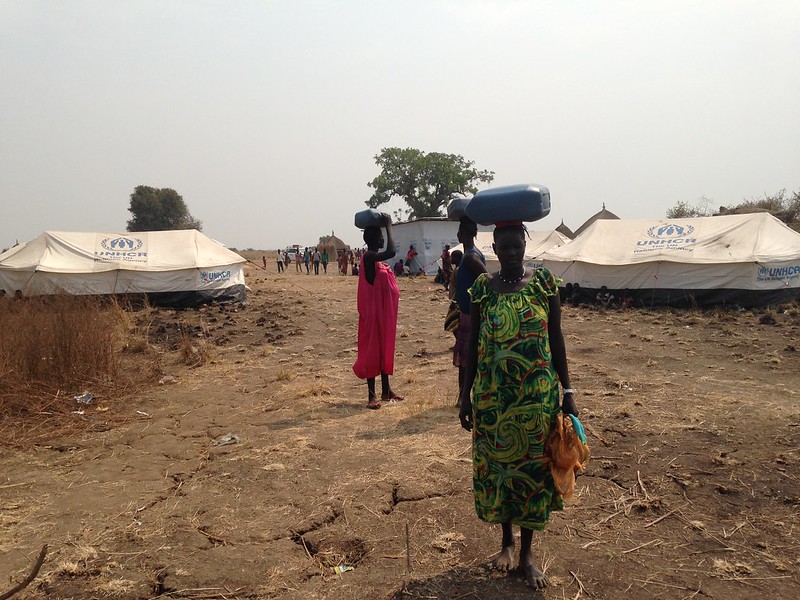Volunteers in Sudan: Groups Fighting War Challenges
 After the battle began in April 2023, the current state of affairs in Sudan witnessed rising levels of violence and humanitarian crises. Millions of people have fled their homes as a result of clashes between the Rapid Support Forces and the Sudanese Armed Forces; 2.1 million people are refugees worldwide, while 11 million faced displacement within Sudan.
After the battle began in April 2023, the current state of affairs in Sudan witnessed rising levels of violence and humanitarian crises. Millions of people have fled their homes as a result of clashes between the Rapid Support Forces and the Sudanese Armed Forces; 2.1 million people are refugees worldwide, while 11 million faced displacement within Sudan.
The nearly two-year struggle between the Sudanese army and the rebel-turned-paramilitary Rapid Support Forces has had a particularly negative impact on women and children. War criminals often utilize sexual abuse as a weapon of war, while essential health facilities in conflict zones do not exist anymore.
However, as part of a larger community response to the worst humanitarian crisis in history, committed, women-led mutual assistance organizations have been established to provide psychological, medical, and economic help to many individuals in need. Sennar Women’s Association began its work by helping women and girls who RSF displaced. The organization’s main goals are to give pregnant women vitamins, sanitary supplies, and first aid to victims of sexual assault.
Sennar Women’s Association
The groups of women volunteers in Sudan, alongside women’s reaction rooms, are an important component of the larger emergency response rooms, which are youth-led and neighborhood-based solidarity networks, according to The New Humanitarian. These networks, which currently number several hundred nationwide, are based on Sudan’s rich history of social cooperation. Thousands of volunteers run them, preparing meals every day and maintaining utilities like water and electricity.
Since international relief organizations have not been able to regularly reach war areas, mutual aid has been extremely important in Sudan. This is even though the war has caused the greatest food crisis in history, with famine found in at least five locations and the largest displacement disaster in history, according to The New Humanitarian.
Challenges
In an interview with The New Humanitarian, volunteers in Sudan claimed that the organizations provide a lifeline for a large number of women and girls, claiming that the international assistance response has particularly overlooked their needs. According to them, the clubs also provide a network of support to help members deal with the battle.
However, according to the volunteers, they encounter an overwhelming variety of difficulties, including sexual assault by RSF soldiers and restrictions by army-affiliated officials on their access to displacement camps, where women are sometimes most in need. Volunteers reported that they do not have sufficient funding either. Although their organizations receive some financial assistance from foreign donors, it is a small portion of what the U.N. and foreign NGOs receive, despite their relatively limited access.
Unpaid volunteers frequently burn out, and communal kitchens frequently close due to the minimal funding that Sudanese benefactors and diaspora groups provide to mutual assistance organizations, according to The New Humanitarian.
How They Help
The women’s response rooms have found time to create and run educational and recreational facilities for children who do not go to scohol, even though a large portion of their work focuses on emergency, according to The New Humanitarian.
While some volunteers in Sudan reported operating literacy, numeracy and art-focused programs and safe spaces, others stated their centers have shut down due to a lack of long-term funding for teacher salaries and school supplies. Additionally, volunteers talked about managing economic empowerment initiatives that involve skill-training courses and the encouragement of small cooperatives involved in regional crafts like handicrafts and soap production.
The communal organizing has positively surprised several volunteers in Sudan, and they have stated that they would like to use it as a launching pad for future feminist activity after the war is over, highlighting how important the work of organizations is during the challenging periods of wartime.
– Taylor Naquin
Taylor is based in Gilbert, AZ, USA and focuses on Good News and Technology for The Borgen Project.
Photo: Flickr
